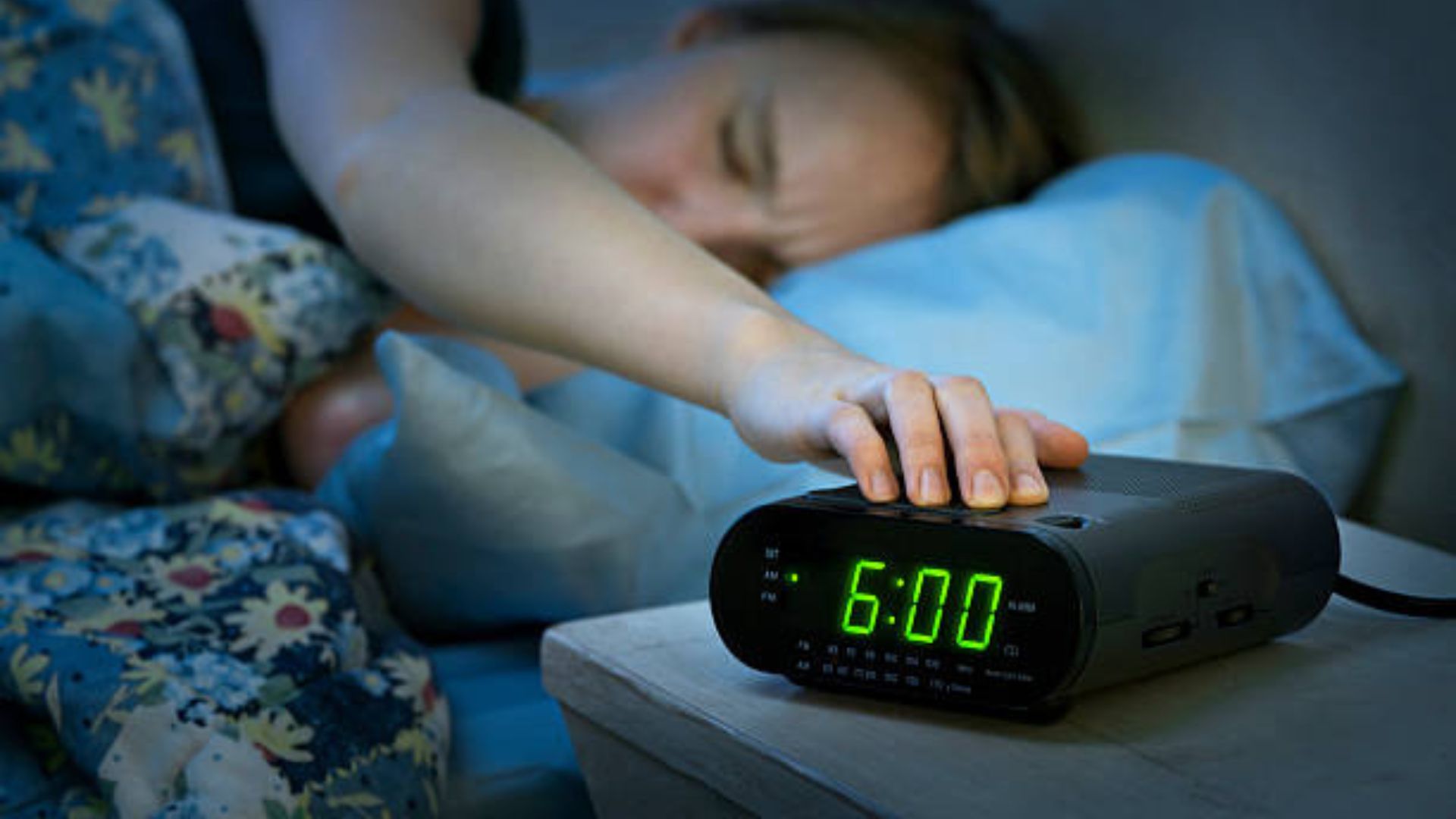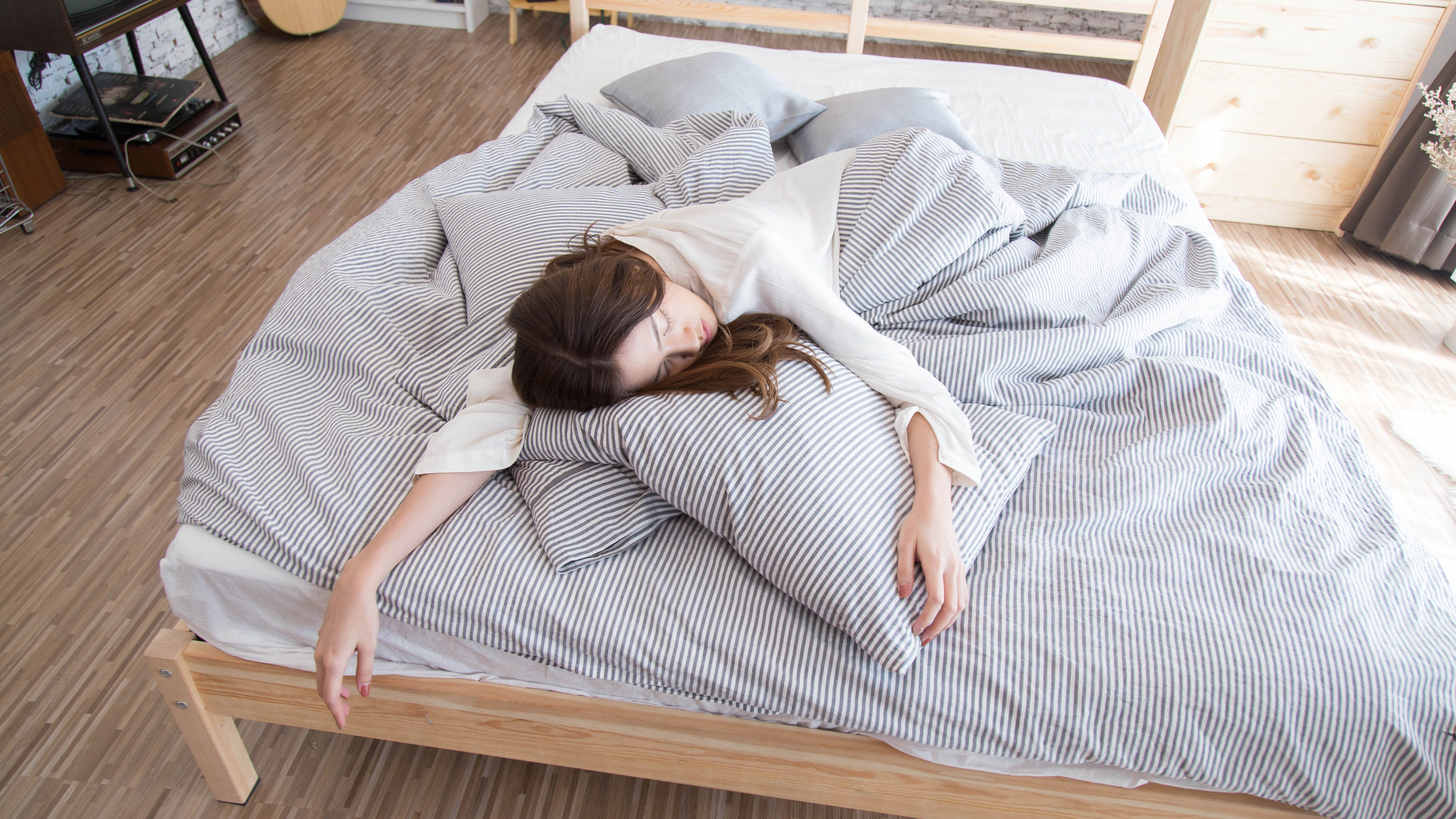People with this gene can thrive on just four hours of sleep a night, researchers find
Researchers have discovered a new genetic mutation associated with natural short sleepers

Have you ever wondered why some people need a full seven-nine hours sleep in order to be healthy, productive and well-rested, while others seem to be able to sail through life despite sleeping far less, maybe even just four hours?
Natural short sleepers (NSS) are people who generally need only four-six hours sleep a night to function normally, and research has already linked a number of genetic mutations to these type of sleepers.
But now, a new study published in Proceedings of the National Academy of Sciences has found a new genetic mutation — in this case a mutation in a gene involved in sleep regulation (the salt-induced kinase 3, or SIK3 gene) — which the researchers say is associated with natural short sleep.
Here, we explore the study findings and why, if you have the SIK3 gene mutation, it could mean you can thrive on as little as four hours sleep a night. Plus, we look at how much rest most people need.
Key findings
- A woman who is a natural short sleeper (NSS) was found to have a mutation in the human salt-induced kinase 3 (hSIK3) gene
- Researchers then recreated this genetic mutation in a mouse model
- The mice with the SIK3-N783Y mutation were shown to sleep for less time than normal mice
The relationship between genetic mutations and natural short sleepers has been previously established. Research has associated five mutations, in four genes, with natural short sleepers, according to Live Science.
However, a study published in Proceedings of the National Academy of Sciences in May has found a new genetic mutation that seems to be associated with natural short sleepers.
The researchers discovered the SIK3 gene mutation "hSIK3-N783Y" after analyzing the DNA of a 70-year-old woman who the researchers described as "exhibiting the natural short sleep duration trait."
Get instant access to breaking news, the hottest reviews, great deals and helpful tips.
This woman reported sleeping for three hours per night, while recordings of her activity and rest patterns showed an average of 6.3 hours sleep per night.
To further explore this, they recreated this genetic mutation in a mouse model and found that it resulted in "a decrease in sleep time and an increase in electroencephalogram delta power," within the mice, a sign of restorative sleep.

Their tests showed that the mice with the SIK3-N783Y mutation slept for around 30 minutes less than other, normal mice, and after being sleep deprived, they slept for around 54 minutes less.
The researchers say that their results confirmed "the mutation’s causality to the sleep trait."
"These findings advance our understanding of the genetic underpinnings of sleep, highlight the broader implications of kinase activity in sleep regulation across species, and provide further support for potential therapeutic strategies to enhance sleep efficiency," the researchers say.
What does being a 'naturally short sleeper' mean?
The concept of natural short sleepers is certainly fascinating, but only around 1-3% of the population are believed to be 'familial natural short sleepers' — a phrase that essentially means that genetic mutations have led to being this sleep type.
According to research, natural short sleepers, "feel well although they sleep only 4–6.5 h per day, which is not observed in average sleepers." They don't feel like they need more sleep and see no ill consequences to their health.
How much sleep do we actually need?
While the findings of the new study are an exciting step in better understanding why certain people need as little as four to six hours sleep, the reality is that most adults need between seven to nine hours sleep per night.
Everyone is different, so listening to your body is an important step in understanding how much sleep you need.

And, of course, there may be times when circumstances don't allow you to get your full quota of sleep for the night, but for most of us, four hours of sleep won't suffice.
In fact, if you regularly sleep for just four hours a night when you actually need more, you're likely to end up sleep deprived.
It's important to remember that those who are defined as naturally short sleepers don't experience the detrimental effects of less sleep like the rest of us.
What happens if we don't get enough sleep?
If you're part of the vast majority of people who need seven-nine hours of sleep, only getting four hours of sleep per night can lead to many different mental and physical problems.
"With only four hours, your body doesn't have sufficient time to complete multiple full cycles, leading to impaired cognitive function, emotional instability, and physical fatigue," neuroscientist and Serta partner Dr. Caroline Leaf previously explained to us.
You're also likely to end up experiencing sleep deprivation, which occurs when you regularly don't get enough sleep. This comes with symptoms like daytime fatigue, irritability, microsleeping, headaches, difficulty concentrating and more.
Long-term sleep deprivation, meanwhile, can have a serious negative impact on your mental health, pose a risk to your physical health and even affect how you socialize.
Jenny Haward is a U.K. based freelance journalist and editor with more than 15 years of experience in digital and print media. Her work has appeared in PEOPLE, Newsweek, Huffpost, Stylist, ELLE, The Sydney Morning Herald and more. Jenny specializes in health, wellness and lifestyle, taking a particular interest in sleep.
You must confirm your public display name before commenting
Please logout and then login again, you will then be prompted to enter your display name.
 Club Benefits
Club Benefits





